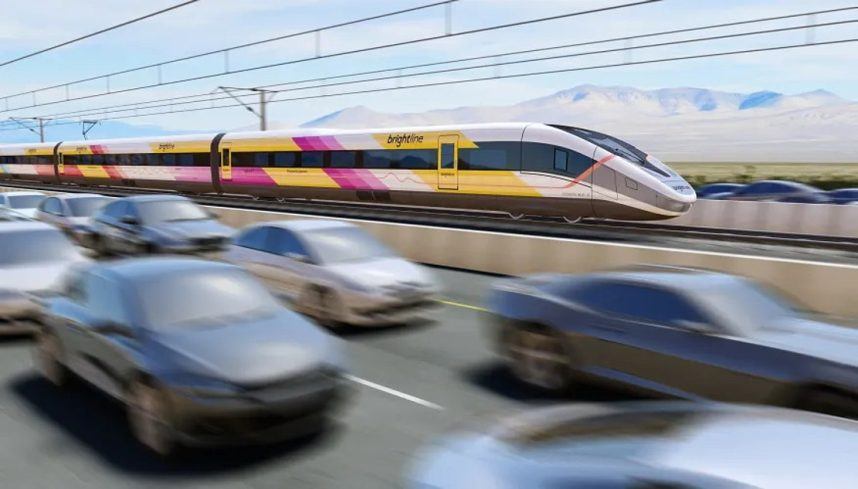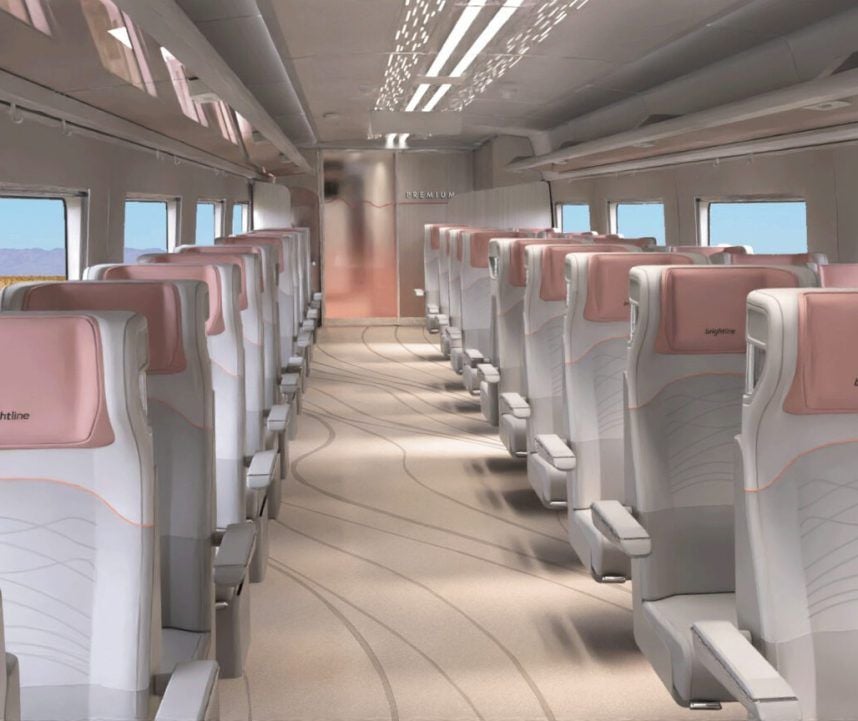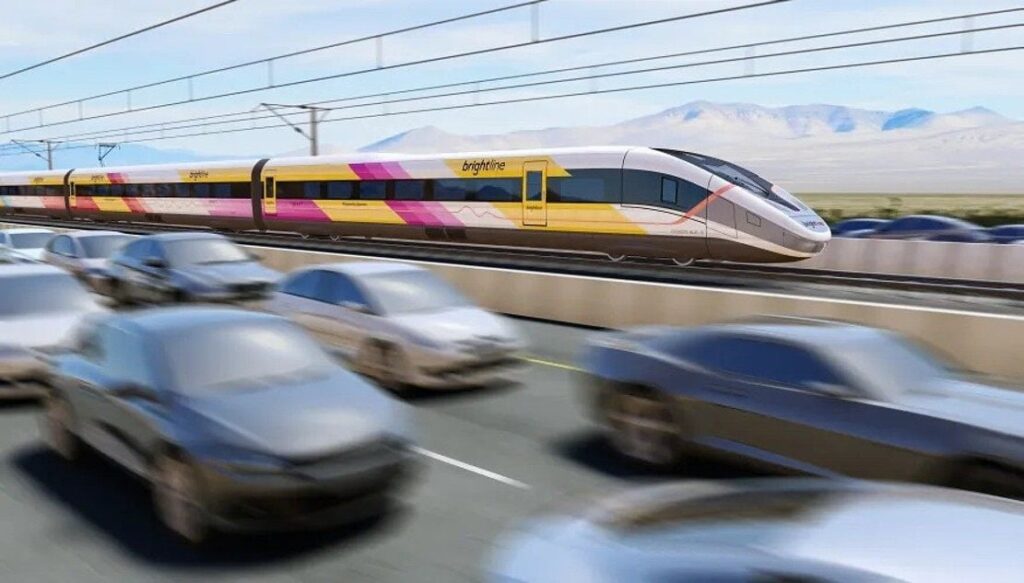Posted on: May 2, 2024, 11:53h.
Last updated on: May 2, 2024, 12:08h.
The high-speed rail connection from Las Vegas to the Los Angeles area has chugged another step closer to reality. On Wednesday, Brightline West announced that Siemens Mobility will manufacture the trains.

Siemens invented the first electric railway in 1879, when the German company was known as Siemens & Halske. It has since remained at the cusp of rail innovation, building the Transrapid maglev train at Shanghai’s Pudong International Airport, which debuted in 2002, and Brightline’s South Florida rail system, which debuted in 2018.
****’s Getting Rail

The contract with Siemens Mobility calls for the delivery of 10 sets of the American Pioneer 220, a new train line the company is introducing along with its Brightline West route.
The seven-car trains, capable of carrying up to 450 passengers at a maximum speed of 220 mph, will travel 218 miles (mostly in the median of Interstate 15) from just south of the Las Vegas Strip to Rancho Cucamonga, Calif., where existing light rail will carry passengers the 40 additional miles west to LA.
Brightline West is expected to launch its new rail service in 2028.
Just as we redefined train travel with our trainsets for Brightline Florida, we are excited to pioneer this new frontier of manufacturing and development for Brightline West,” Brightline CEO Michael Reininger said in a statement. “The momentum we are building will culminate in new jobs and a new supply chain that will establish the foundation for a high-speed rail industry from coast to coast.”
Last week, Brightline West broke ground with a Vegas visit from US Transportation Secretary Pete Buttigieg, who hammered in a pretend rail spike to ceremoniously mark the system’s groundbreaking.
The contract includes 30-year rolling stock maintenance, which will be conducted by crews at a planned facility in Sloan, Nev., 25 miles south of the Las Vegas Strip.
Money Train Stuck at Station
Brightline still has yet to account for about half of the project’s $12 billion budget. It already received $6.5 billion from the Biden administration, including a $3 billion grant from federal infrastructure funds and approval to sell another $2.5 billion in tax-exempt bonds. The company additionally received federal authorization in 2020 to sell $1 billion in similar bonds.
Though the trains will cut the four-hour drive across the Mojave Desert in half, and put a dent in the 50 million people who travel by car each year, Brightline founder Wes Edens told the LA Times in March that his company “will eventually charge more than $400 for a round trip from Las Vegas to Rancho Cucamonga.”
Figuring in an hour for light rail, that’s still more than twice as long as an average flight from LA to Las Vegas, at a roundtrip price of $75 more than flying.
Numerous high-speed rail projects have failed in the US, where driving is cheaper and population centers are farther apart than in Europe, where they are commonplace and profitable.
Talk of a Vegas to LA bullet train traces back to 2005, when Tony Marnell II, founder of the Rio, couldn’t make his proposed XpressWest system to Victorville, Calif. a reality.



